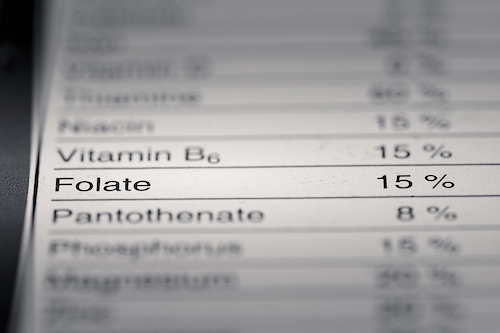The methylation cycle is one of the most important metabolic pathways in your body. The body is very complex, with various processes that all need function properly for optimum health. Think of methylation as the mechanism that turns biological switches on and off for a host of systems in the body. Understanding how the methylation cycle works and what affects it can provide valuable clues to improving health and wellness.
What is Methylation?
We all know the importance of getting adequate vitamins through diet and supplementation. But have you ever really thought about what process in your body insures the assimilation and absorption of those nutrients? The methylation cycle converts the nutrients we consume into the energy our bodies need to work properly.

The biochemical process of methylation is essential for the optimal function of almost every single body system. As you go about your day, methylation occurs billions of times every second. It is through this process that your body completes various vital functions, such as:
- DNA repair and production
- Detoxification of cells
- Neurotransmitter production
- Glutathione production
- Eye health
- Liver health
- Energy production
- Fat metabolism
- Healthy endocrine function
- Regulation of bodily inflammation and immune response
- Mood stabilization and stress regulation
How the Methylation Cycle Works
By definition, methylation is the process of a molecule bonding to a methyl group (CH3). The methyl group changes the shape and function of that molecule and gives it a new job. The methylation cycle converts folate groups into methylfolate, also known as vitamin B9. You may want to think of it as the “B vitamin cycle” because the process converts B vitamins into methyl-groups.
The entire process relies on one specific B vitamin mentioned above, B9. This vitamin goes by several names, including 5-MTHF, folate, and L-methylfolate. These refer to the biologically active form of the vitamin. 5-MTHF is a vital part of the complex chain reaction of methylation. You see, this vitamin turns on the switch to trigger the chemical S-adenosylmethionine (SAMe) to donate the methyl groups needed for methylation to occur.
One of the key functions of 5-MTHF in the body is breaking down homocysteine. This is important because homocysteine is an amino acid that can cause damage to cells and increase inflammation.
This is why B vitamins are so vital for optimum health and stress management. During times of stress, your methylation cycle requires more B vitamins to get the job done. Your body then uses the methyl-groups to perform the various functions listed above.
When methylation runs smoothly, you feel energetic, have a positive mood, and feel generally well. On the flip side, when it is not working, you may feel tired and run-down, depressed, moody, susceptible to infections, and foggy-brained.
When Problems Arise
Much of the vitamin B9 humans consume is in the form of folic acid. Whereas natural folate is readily transported into cells for use, folic acid must undergo a complex metabolic pathway to be converted into usable 5-MTHF. One key enzyme necessary for this conversion is the MTHFR enzyme.
Too Much Stress
During times of stress, cortisol levels increase in the body. Cortisol affects the B vitamin cycle because it slows down certain enzymes. This, in turn, decreases the amount of SAMe produced. Remember, SAMe is a vital molecule in the methylation process.

When we think of stress, we often think about emotional stress. And yes, emotional and psychological stress can contribute to decreased SAMe. But there are several types of physical stress that also interrupt the proper function of the methylation cycle, such as:
- Oxidative stress
- Autoimmune disease
- Candida
- Leaky gut
- Heavy metals and other toxins
MTHFR Mutations
This is where trouble starts for some people because mutations of the gene that produces MTHFR are extremely common. In fact, some estimates report that 30-60% of humans have a genetic mutation that makes it challenging for their bodies to create enough 5-MTHF.
These people have a decreased ability to turn folic acid into folate. Thus, they don’t get the benefit of the B vitamin cycle working optimally. This leads to elevated homocysteine levels, which can increase the risk of many health conditions, including:
- Heart disease, stroke and other forms of cardiovascular disease
- Alzheimer’s disease
- Cancer
- Macular degeneration
- Hearing loss
- Depression and anxiety
- Fibromyalgia
- Osteoporosis
Methylation Cycle Tune Up
If you suspect your stress levels are taking a toll on proper methylation, the obvious solution is to take measures to decrease your physical and emotional stress. It’s also a good idea to consider taking a quality B vitamin supplement to help supply necessary folate.
For people with a MTHFR mutation, however, many supplements are useless because their bodies cannot convert folic acid into 5-MTHF. Not only that, but excess folic acid in the blood can actually pose a serious health risk to individuals with the mutation.

Selecting a Vitamin B Supplement
The best vitamin B supplements will contain folate from natural plant sources, as opposed to synthetic folic acid. Natural folate bypasses any MTHFR defects, and is shown to be more effective at increasing plasma folate levels and reducing homocysteine concentrations. In addition, it has fewer interactions with other medications than does folic acid.
Look for a naturally-derived supplement that contains biologically active (or bioavailable) folate or 5-MTHF. It should also contain vitamin B12, a necessary coenzyme to B9.
Eat Your Vitamins Instead
Because natural B vitamins found in foods are more easily assimilated by the body, consuming a diet rich in phytonutrients is preferable to taking supplements. Studies have even shown that a folate-rich diet can match the homocysteine-lowering effects of taking a 5-MTHF supplement.
Want to learn more about foods to eat to optimize your methylation cycle? Check out Methylation Adaptogens.













